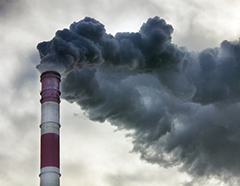Need Assistance? Call us today! 602-478-9713
 The ill effects of air pollution may literally be causing some people to lose sleep, according to new research published online in the Annals of the American Thoracic Society.
The ill effects of air pollution may literally be causing some people to lose sleep, according to new research published online in the Annals of the American Thoracic Society.
In “The Association of Ambient Air Pollution with Sleep Apnea: The Multi-Ethnic Study of Atherosclerosis,” Martha E. Billings, MD, MSc, and co-authors report a link between obstructive sleep apnea and increases in two of the most common air pollutants: fine particulate pollution, known as PM2.5, and nitrogen dioxide (NO2), a traffic-related pollutant.
“Prior studies have shown that air pollution impacts lung and heart health, but only a few studies have looked at how air pollution might affect sleep,” said Dr. Billings, lead study author and associate professor of medicine at the University of Washington. “It seemed likely that air pollution was detrimental to sleep, given that air pollution causes upper airway irritation, swelling and congestion, and may also affect the parts of the brain and central nervous system that control breathing patterns and sleep.”
Researchers analyzed data from 1,974 participants in the Multi-Ethnic Study of Atherosclerosis (MESA) who also enrolled in both MESA’s Sleep and Air Pollution studies.
Using air pollution measurements gathered from hundreds of MESA Air and Environmental Protection Agency monitoring sites in six U.S. cities, plus local environment features and sophisticated statistical tools, the research team was able to estimate air pollution exposures at each participant’s home.
The study found a participant’s odds of having sleep apnea increased by:
Source: American Thoracic Society